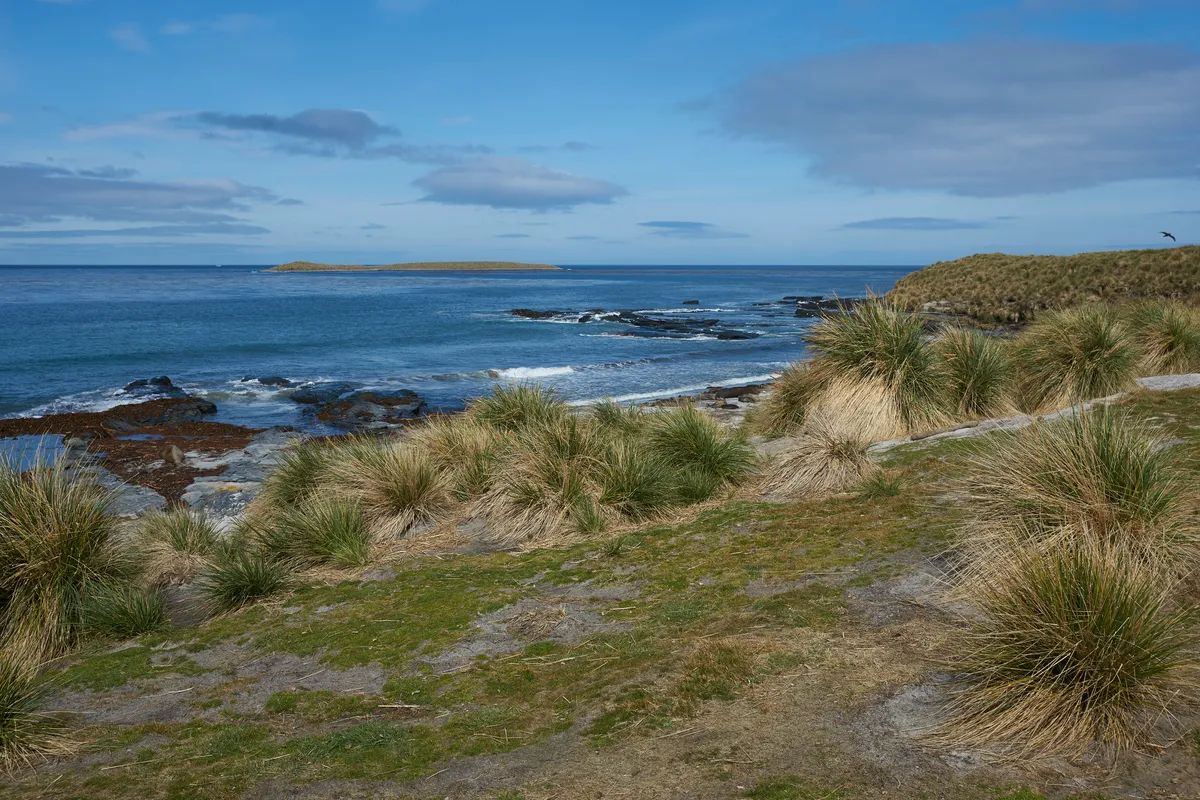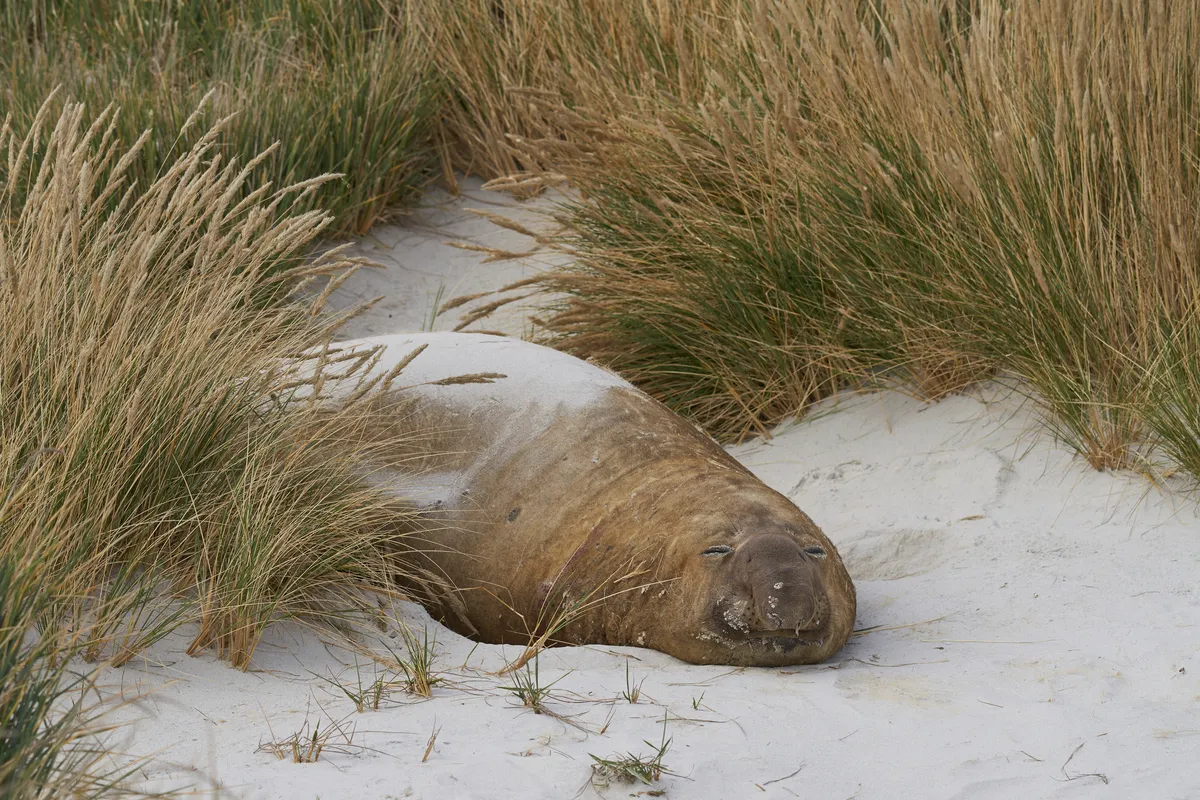Upon finding out he was being deployed to the Falklands Islands, Captain Joe Harris did his research. “The first thing that struck me was the plethora of wildlife and landscapes that the islands play host to,” he says. “My wife Kate and I joined the local charity, Falklands Conservation, and the British Forces South Atlantic Islands (BFSAI) Conservation Society.”
As the habitats officer for the society, Joe’s volunteering includes beach cleans, habitat restoration and surveying the main military site.
“The nature of the work is highly seasonal. Last year, we completed several trips to outlying islands to replant tussac grass, previously damaged by fire resulting from lightning strikes,” explains Joe. Tussac grass is a keystone species of the coastal areas, and mature clumps can grow to several metres in height.

“They really are a sight to behold, and provide a home for various animals. Birds such as Cobb’s wrens, tussac birds and austral thrushes will nest in the upper fronds, while elephant and fur seals and kelp geese make their homes on the ground under the canopy. Beneath the surface, you’ll find the burrows of great and sooty shearwaters,” Joe explains.
Planting is best undertaken in the winter, as the higher levels of soil moisture are better for the young plants, but Joe and the other volunteers have to cope with variable weather.
Joe recalls departing Motley Island by helicopter after replanting a large area. “Looking back from the air was the moment I truly realised how much of the blackened land was now showing the waving strands of newly planted tussac grass.”
It takes a while for tussac plants to get properly established, and Joe knows that there’s still a lot to do. “When embracing any conservation activity, the real benefits are very long-term,” he says. He and Kate will be deployed to the Falklands until mid-2021.

“The tangible benefits of my own contribution will only be realised after I’ve departed,” he says. “I’ll never see a short-eared owl making its nest in a clump that I’ve planted, but the thought that in a 100 years’ time one might do so while sealions look on from below and a Magellanic penguin nests in a burrow gives me great hope.”
This article originally appeared in BBC Wildlife. Take a look inside the current issue and find out how to subscribe.
Main image: Joe (kneeling, front left) and other volunteers planting tussac grass.
